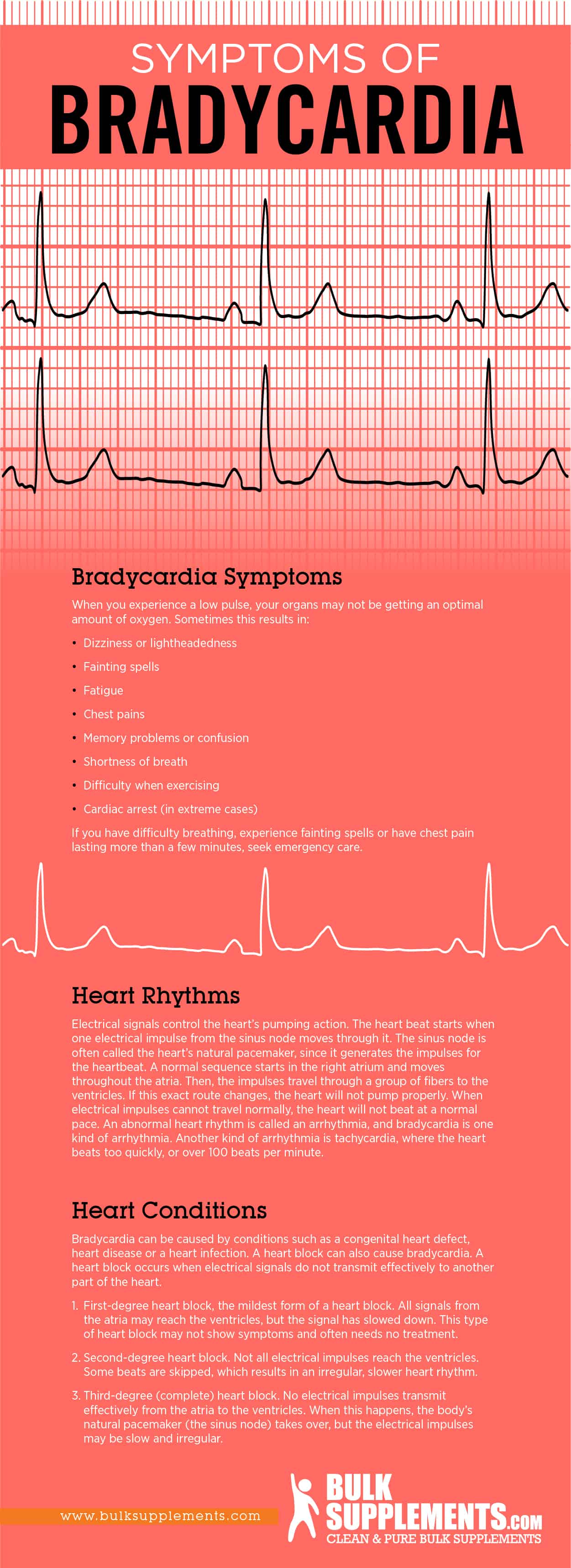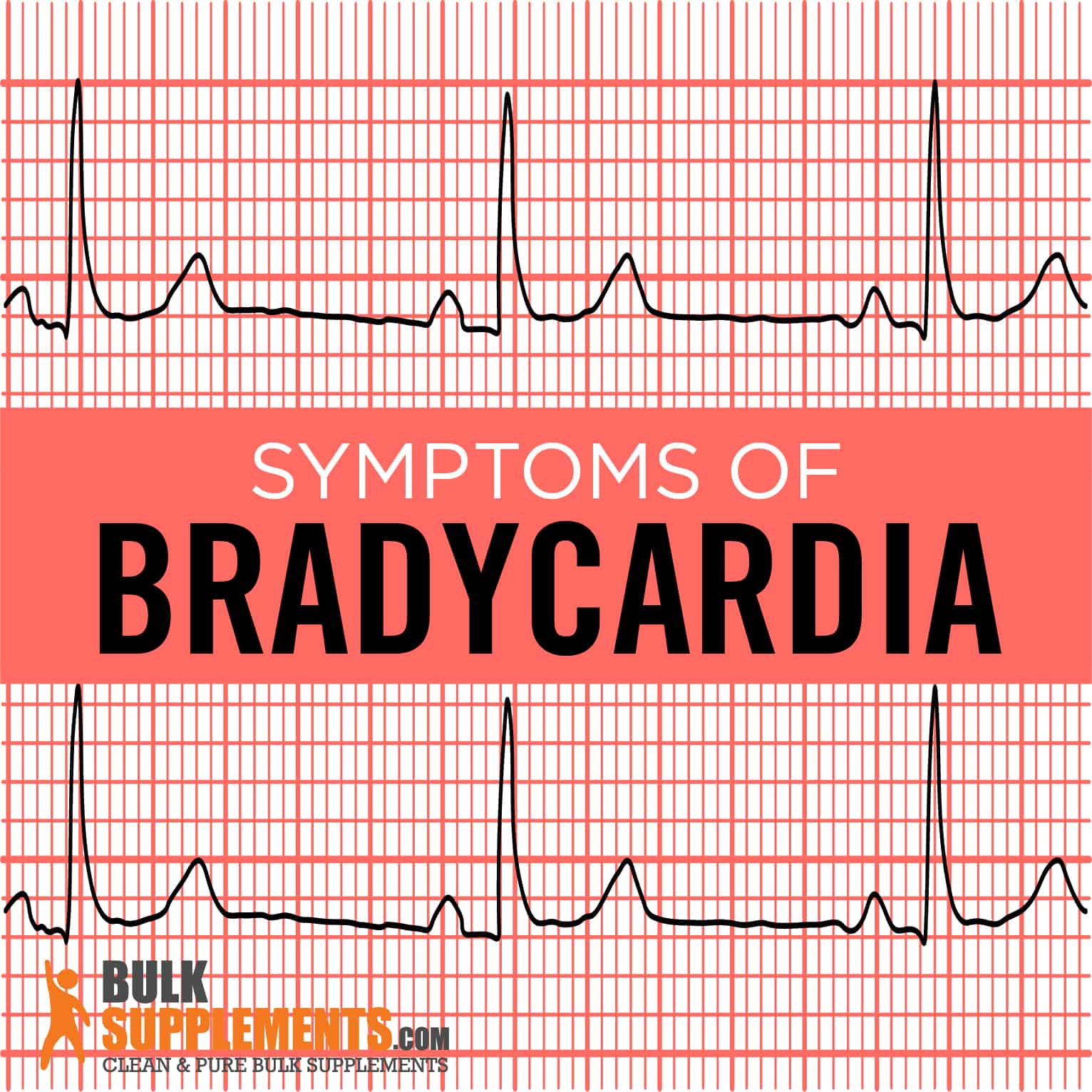What is Bradycardia?
If you have a heart rate that’s slower than normal, you could very well be dealing with bradycardia. But how low is too low for a heart rate? That depends on your age and physical condition.
The average adult heart beats between 60 to 100 times per minute. A person is diagnosed with bradycardia if their heart beats fewer than 60 beats per minute. Of course, there are exceptions to this; during sleep, heart rate may dip below 60 beats per minute. Athletes and physically active individuals may have a low normal heart rate.
However, a slow heart rate can mean that the heart isn’t pumping enough oxygen-loaded blood to the body. Low heart activity can result in fainting spells, chest pain or heart failure. If severe bradycardia goes untreated, it can result in seizures, heart failure and even death. It can also be a symptom of many different health conditions. To determine the cause behind the symptoms, it’s important to get an accurate diagnosis and proper care.
Heart Rhythms
Electrical signals control the heart’s pumping action. The heart beat starts when one electrical impulse from the sinus node moves through it. The sinus node is often called the heart’s natural pacemaker, since it generates the impulses for the heartbeat. A normal sequence starts in the right atrium and moves throughout the atria. Then, the impulses travel through a group of fibers to the ventricles. If this exact route changes, the heart will not pump properly. When electrical impulses cannot travel normally, the heart will not beat at a normal pace. An abnormal heart rhythm is called an arrhythmia, and bradycardia is one kind of arrhythmia. Another kind of arrhythmia is tachycardia, where the heart beats too quickly, or over 100 beats per minute (x, x).
Bradycardia Symptoms
When you experience a low pulse, your organs may not be getting an optimal amount of oxygen (x). Sometimes this results in:
- Dizziness or lightheadedness
- Fainting spells
- Fatigue
- Chest pains
- Memory problems or confusion
- Shortness of breath
- Difficulty when exercising
- Cardiac arrest (in extreme cases)
If you have difficulty breathing, experience fainting spells or have chest pain lasting more than a few minutes, seek emergency care.
Causes of Bradycardia
What causes bradycardia? A slow heart rate can occur as a result of disease, medications, chronic illness or age.
Heart Conditions
Bradycardia can be caused by conditions such as a congenital heart defect, heart disease or a heart infection. A heart block can also cause bradycardia. A heart block occurs when electrical signals do not transmit effectively to another part of the heart (x).
- First-degree heart block, the mildest form of a heart block. All signals from the atria may reach the ventricles, but the signal has slowed down. This type of heart block may not show symptoms and often needs no treatment.
- Second-degree heart block. Not all electrical impulses reach the ventricles. Some beats are skipped, which results in an irregular, slower heart rhythm.
- Third-degree (complete) heart block. No electrical impulses transmit effectively from the atria to the ventricles. When this happens, the body’s natural pacemaker (the sinus node) takes over, but the electrical impulses may be slow and irregular.

Other Conditions
Other causes for bradycardia may include (x):
- Aging is a factor; elderly adults are more likely to experience bradycardia
- Sick sinus syndrome is a heart rhythm disorder,in which the sinus node, the heart’s natural pacemaker, is not functioning properly
- Rheumatic fever; a disease that can develop if strep throat or scarlet fever are not treated properly
- Collagen vascular diseases, such as lupus, scleroderma or rheumatoid arthritis
- Pericarditis, a swelling and irritation of the thin saclike membrane surrounding the heart
- Amyloidosis, the buildup of amyloid proteins in the heart, kidneys, liver or other organs
- Lyme carditis, a complication of Lyme disease, which occurs when the Lyme-causing bacterium moves to the heart
- Hypothyroidism affects the heart rate, since the heart rate is regulated by the thyroid hormone
- Sleep apnea causes sudden drops in blood oxygen levels, which puts a strain on the heart
- Anorexia nervosa can be a precursor to a lethal heart condition in patients with bradycardia (x)
Bradycardia Treatment
Borderline or occasional bradycardia may not require treatment. Severe or prolonged bradycardia can be treated in a variety of ways, depending on the cause.
Diagnosis
A discussion with a health professional may begin with a family medical history and physical exam. Tests may be necessary to measure heart rate and assess overall health. The primary way to evaluate bradycardia is the electrocardiogram (EKG). Using painless electrodes attached to the chest and arms, the test records electrical signals traveling through the heart. A doctor may also measure the heart rate during exercise and administer blood tests to determine any underlying cause.
Changing Medication or Dosage
If medication is causing the problem, dosage levels can be adjusted or the medication can be changed.
Pacemaker
Sometimes a pacemaker is necessary to adjust the heart’s rhythm. This device is implanted under the collarbone. It is battery-operated and about the size of a cell phone. The wires of a pacemaker travel through the heart, monitoring the heart rate and generating electrical impulses.
Overall Heart Health
Bradycardia often has a connection with heart tissue damage or some type of heart disease. Making heart-healthy choices may decrease the risk of heart problems, including bradycardia. Some factors that increase the risk of heart disease include high blood pressure, heavy drinking, smoking, obesity, stress and anxiety.
A heart-healthy lifestyle is one that includes:
- Staying active
- Eating nutritious foods
- Maintaining a healthy weight
- No smoking
- Controlling cholesterol
- Manage stress
- Drink alcohol only in moderation
Bradycardia Remedies and Supplements
A healthy diet that includes high fiber, fresh produce and little salt has a number of cardiovascular benefits (x). Limiting caffeine, adding water consumption and staying physically active are all important, too. Beyond these lifestyle habits, there are supplements available that support a healthy heart, including (x):
- Vitamin K has benefits for the heart, according to clinical studies (x)
- L-carnitine can protect the heart during oxidative stress (x)
- Magnesium and heart health show a positive connection, according to clinical research (x)
- Coenzyme Q10, an antioxidant and natural body enzyme, prevents harmful oxidation and supports the heart (x)
- Omega-3 fatty acids are among the most important supplements for cardiovascular health
- Garlic contains a multitude of trace minerals and properties that support heart health
The Bottom Line
Bradycardia is an abnormally slow heart rate of less than 60 beats per minute. Bradycardia can be occasional or chronic and the symptoms vary from mild to extreme. When to see a doctor depends on the type and frequency of symptoms. Because bradycardia has a variety of causes, it’s important to consult a health professional to get a correct diagnosis and determine if there is an underlying health condition. Once the cause is clear, bradycardia can be treated effectively. A healthy diet and lifestyle is one of the best ways to optimize heart health.
By: Lisa Luciano


